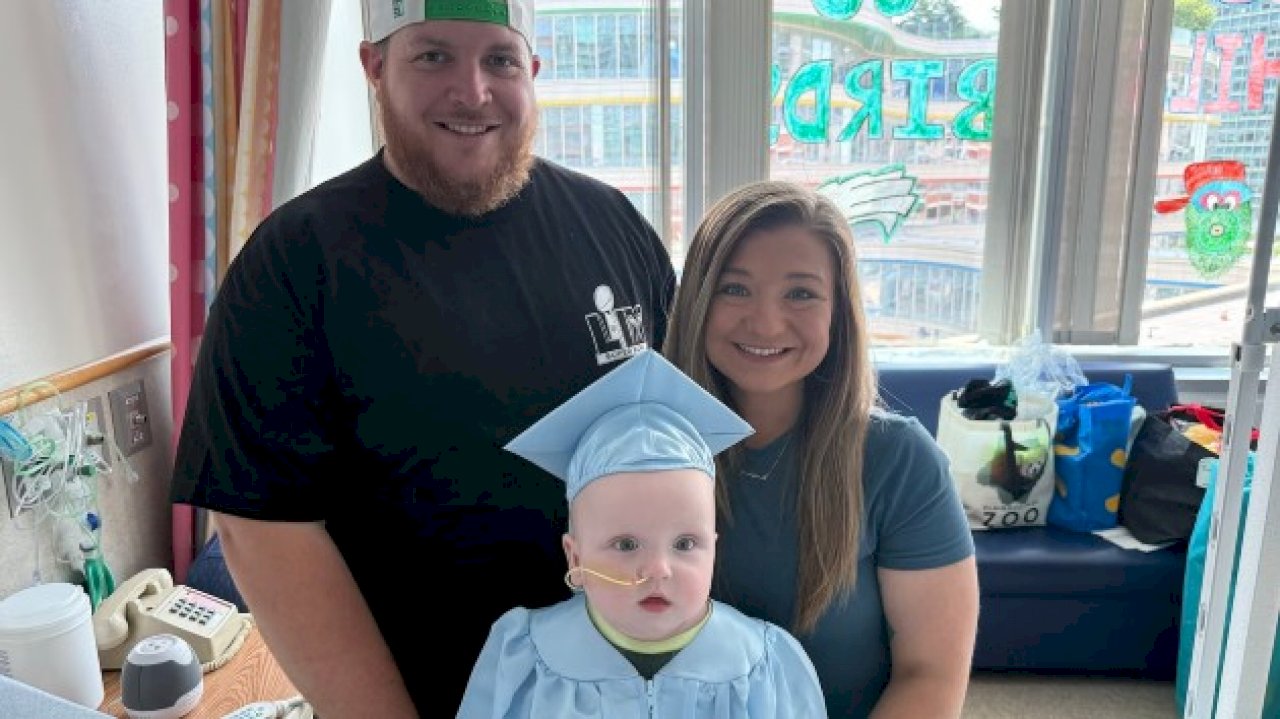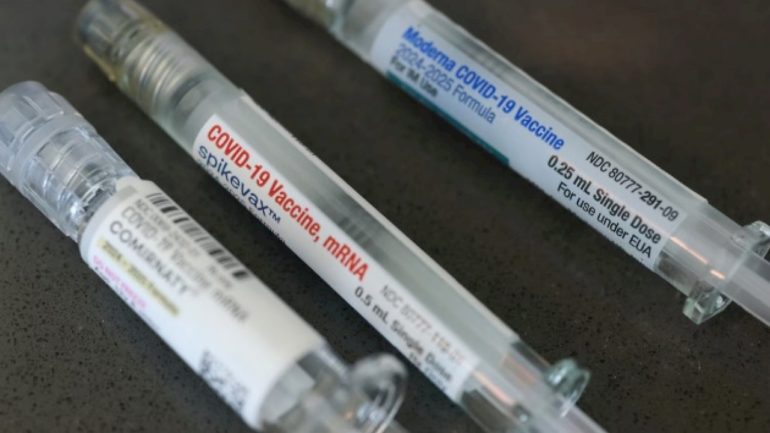Listeners:
Top listeners:
-
 play_arrow
play_arrow
94.3 Rev-FM The Rock of Texas | Where Texas Rocks
-
 play_arrow
play_arrow
99.1 The Buck Texas Country's Number 1 Country
-
 play_arrow
play_arrow
103.7 MikeFM Your Texas Hill Country Mix Tape
-
 play_arrow
play_arrow
KERV 1230 AM
-
 play_arrow
play_arrow
JAM Sports 1 JAM Broadcasting Sports 1
-
 play_arrow
play_arrow
JAM Sports 2 JAM Broadcasting Sports 2
Baby saved by gene-editing therapy ‘graduates’ from hospital, goes home

(PHILADELPHIA) — KJ Muldoon, a 10-month-old baby who sparked nationwide headlines after receiving a first-of-its kind gene-editing treatment, was released from the hospital this week.
KJ has spent the majority of his life at Children’s Hospital of Philadelphia after being diagnosed with a one-in-a-million, deadly genetic disease shortly after birth. Working quickly, his doctors were able to use new gene-editing technology called CRISPR, designing a bespoke treatment just for him.
The treatment, first infused into his body at seven months old, seems to have worked. KJ’s body, which was fighting a toxic buildup of ammonia, began to thrive and he quickly gained weight appropriate for a baby of his age.
Wearing a cap and gown to symbolize his “graduation” from the hospital, baby KJ was discharged home to his parents and siblings on Tuesday after spending 307 days at Children’s Hospital of Philadelphia. Doctors and nurses gathered for a “clap out” on his way out the hospital doors, and he was escorted home by local law enforcement.
KJ’s metabolic condition, called carbamoyl-phosphate synthetase 1 deficiency, affects about 1 in 1.3 million people. The disease kills 50% of babies by early infancy.
KJ “had the most severe variant,” Dr. Ahrens-Nicklas, one of KJ’s doctors at Children’s Hospital of Philadelphia, told ABC News.
“This meant that we had to expedite the pathway for personalized therapy we were already working on,” he said.
Gene therapy treatments have already been approved for more common genetic diseases, including the blood disorders sickle cell disease and beta thalassemia, which affect tens of thousands of patients in the U.S. Those treatments are sold by major pharmaceutical and biotechnology companies.
KJ’s disease is so rare that his doctors were on their own. But thanks to the technology available at Children’s Hospital of Philadelphia, his doctors believed they could use a streamlined approach to make their own bespoke therapy, in-house.
CRISPR gene-editing technology was the perfect tool for a rare genetic disease like KJ’s, and potentially future babies born with slightly different genetic errors.
“Think of it like a GPS signal,” Dr. Kiran Musunuru, director of the Penn Cardiovascular Institute’s Genetic and Epigenetic Origins of Disease Program, told ABC News. “You can change where the GPS is going depending on what specific sequence of genes you want to change.”
Musunuru says there is still a lot of work to be done on this bespoke treatment to make it feasible, but he is hopeful that more babies with ultra-rare conditions can be treated this way.
ABC’s Dr. Keerthana Pakanati contributed to this report.
Copyright © 2025, ABC Audio. All rights reserved.
Written by: ABC News
Similar posts
-
Top popular

Ingram man charged with murder after fatal shooting

Kerr Crime Stoppers offering reward up to $5,000 for information in last week’s non-viable school threat

KISD asks parents to communicate with children about words and actions after ‘copy cat’ threat note found at middle school

City of Kerrville Parks and Recreation reminds citizens that a Red Flag Warning is in effect until further notice

City of Kerrville says that May 7 General and Special Elections will proceed



